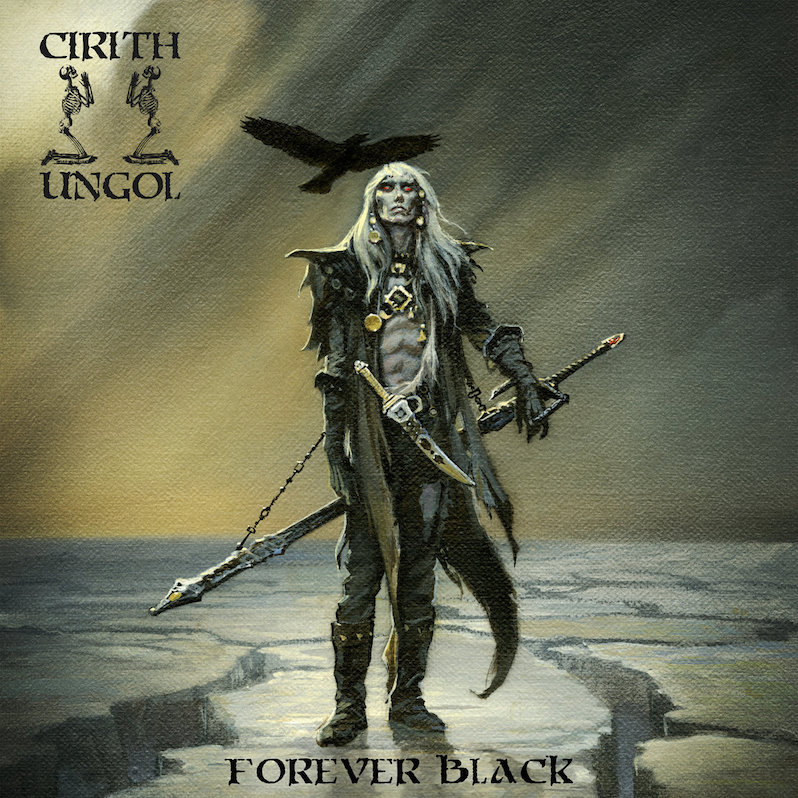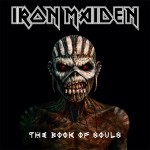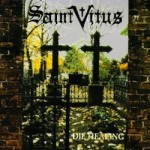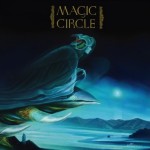Cirith Ungol : Forever Black

It’s nearly impossible to state how big a deal this album is. Cirith Ungol was once a metal band lost to time, authors of two perfect heavy metal records in their debut Frost and Fire and its follow-up King of the Dead as well as two damn good records in the ones that followed. But, like many traditional and doomy heavy metal bands who refused the call to modernization during the rise of speed metal and its eventual bifurcation into both thrash and power metal, they got lost in the fray. To any hesher worth their salt, Cirith Ungol was a treasured name, and those first two albums especially were ones whose praise was highly sung, and for damn good reason. But to metalheads more broadly, they were something most would sadly miss, likely hearing the name in passing in metal magazines or among their more underground-attuned historicist friends but no more than that. Their last album before this was 1991’s Paradise Lost, a solid album that sadly went unheard by many of even the group’s fans due to issues with the label and distribution, going largely unlistened to until the dawn of file-sharing and later YouTube resurrected it; for most, this band functionally stopped existing after their third record in 1986.
But the metal gods have smiled kindly upon reunion records for the past decade or so. In the world of death metal, we had the superlative returns of Atheist, Cynic, Gorguts and Carcass. Within the world of traditional heavy metal, the recent run of Satan has boosted a once also-ran band into rarefied and respected heights, while the newest Accept record resurrected a band that for many had been relegated to a disdainful and dated bin and made them bold and relevant to heavy metal just as they were in the early ’80s with classics like Balls to the Wall. Forever Black, thankfully, mercifully, lives within these same heights. These songs slash and cut with fury, being that same tightly-coiled and rough-hewn blend of traditional heavy metal that would later give birth to groups like Metallica and the whole of thrash metal. Cirith Ungol always were on the rougher and heavier end of that sound and on Forever Black that sense of necessary roughness is maintained; it’s not hard to see this group as the missing link between Rush and Metallica, feeling often like if the earlier and much more explicitly metallic Rush of songs like “The Necromancer” were extended forward into the burgeoning NWOBHM aesthetic of the early ’80s. Songs like “Legions Arise” and especially album highlight “The Frost Monstreme” scream with an unholy heavy metal vengeance, more than making up for lost time from this group.
Cirith Ungol wisely—like Angel Witch, Satan and Accept before them—choose not to update their sound. There is a comparison to the most recent Judas Priest records in terms of their methodology; instead of unwisely diving into the sounds of modern heavy metal and potentially spoiling an otherwise flawless run from the group, they instead hired a young-gun rabid fan of their material to keep them straight and honest. The problem never was Cirith Ungol; as stated before, all four of their records prior to this are treasured by heshers everywhere and those first two live in the same heights as Fates Warning and Manilla Road at their peak as perhaps the ideal form of heavy metal. We even have a massive and resurgent wave of trad metal bands now, a wave that many cynically hand-waved as mere nostalgia acts but now have soared into a few decades of high-profile life themselves (with Ghost among them being on the verge of being the first big heavy rock band since Mastodon). No, all Cirith Ungol needed, something they were wise to note, was to show up with the same heavy-handed doom-flecked proto-prog metal with a producer sympathetic to the cause.
They play a style of metal here and elsewhere that is not what you might call chops heavy. Clearly Cirith Ungol have heard the wild progressive heights of ’70s Judas Priest and Deep Purple and those other major touchstones for traditional heavy metal, know well what they are supposed to do, but like all the very best of NWOBHM and American trad metal bands of their era, they can’t quite pull off what those chops-heavy wizards could do. This is not a fault; it’s part of the distinct charm. Every inch lost from the prog world is made up with hard rock fury, injecting pure power to fill the gap. It’s this same mixture of prog ambitions compensated with vicious howl and playing simply hard as shit that would make their work become so well admired by extreme metal bands in years to come; this is a group, after all, that would later be cited by black and death metal bands as foundational to their sense of attitude and ambition over everything, even ability. Forever Black feels like a crystal, an immaculate lattice, those same raw attitudes and songwriting chops of the original players shaped and configured into the perfect Cirith Ungol shape by the young member keeping them on the straight-and-narrow. There is a story they tell of how one of the guitarists wrote a riff he was proud of and wanted included; the young member, hearing it, noted it sound like a Korn riff and told him to save it for a solo record, not because Korn is bad but because they are not Cirith Ungol, and the return after three decades needed to be Cirith Ungol incarnate.
This level of compassionate understanding of what this band is and means and how it is applied to songwriting and riff selection is readily apparent over the whole of the album. Sometimes we talk about records sounding old in a bad way, meaning they sound unoriginal, nostalgia-aping, uninspired, but Forever Black lives instead in the world of the return of Angel Witch and the jaw-droppingly powerful Firepower from Judas Priest. The key for those records was a band rediscovering themselves, tapping once more into what feels still like a limitless pool of power. These sounds, the ones found here on Forever Black, are quite simply the central column of heavy metal; I cannot honestly imagine someone that loves heavy metal hearing this and being anything less than ecstatic, and I have strong reason to doubt the true steel spirit of those that don’t love it. Cirith Ungol might be minor gods in the mighty pantheon of heavy metal, beneath the triumvirate of Judas Priest, Iron Maiden and Metallica, but gods nonetheless, comfortable peers among Mercyful Fate and Celtic Frost. Forever Black isn’t just a fitting and powerful return of a beloved band; it serves as a reminder of the effervescent power of heavy metal, of the centrality of these sounds and attitudes to its construction, and to the immortal spirit that bursts within it. It’s impossible to hear this and not shed the carefully constructed maturity we heshers wear like a veil and instead burst powerful and free into the heavy metal mysticism and cosmic glory of metal that roars in our hearts. Long live heavy metal, long live Cirith Ungol, and long live Forever Black.
Label: Metal Blade
Year: 2020
Similar Albums:
 Iron Maiden – The Book of Souls
Iron Maiden – The Book of Souls
 Saint Vitus – Die Healing
Saint Vitus – Die Healing
 Magic Circle – Journey Blind
Magic Circle – Journey Blind
Langdon Hickman is listening to progressive rock and death metal. He currently resides in Virginia with his partner and their two pets.

